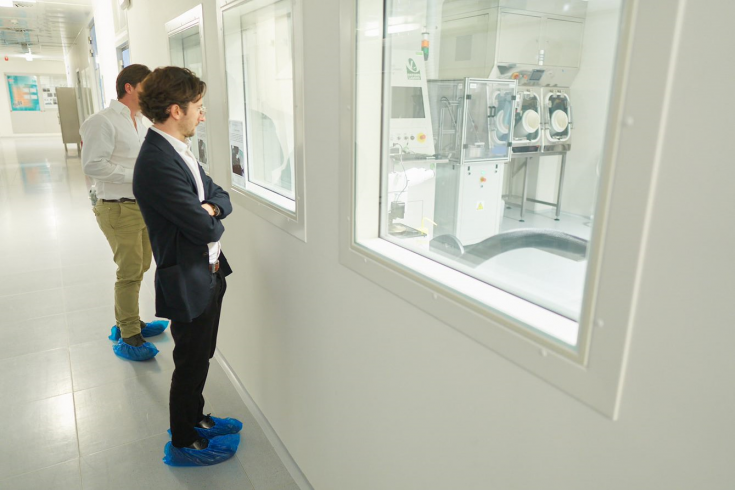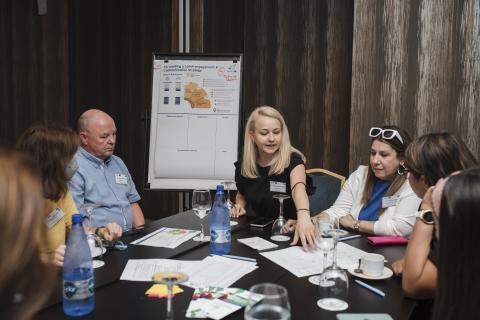University-industry collaboration for the digital and green twin transitions

On 19 October 2022, the Policy Learning Platform in Brno, Czech Republic on University-industry collaboration for the digital and green twin transitions.
Our Thematic Experts on Research and Innovation, Arnault Morisson and Marc Pattinson, moderated the session which was organised on the request of the Central Transdanubian Regional Innovation Agency (CTRIA), Hungary.
Participants
- Dr. Ákos Szépvölgyi, Central Transdanubian Regional Innovation Agency, Managing Director
- Dávid Bereczkei, ELI-HU Nonprofit Ltd., Project manager
- Zoltán Haász, South Transdanubian Regional Innovation Agency, Managing Director
- Zsolt Pálmai, South Transdanubian Regional Innovation Agency, Deputy Director
- László Sitányi, Blue Planet Foundation, COO
- Charlotte Lorentz Hjorth, Lund University Cooperation Office – KIC partnerships, Sweden
- Karin Nygård Skalman, Mid-Sweden University, Sweden
- Luc Hulsman, SNN – Northern Netherlands Alliance, the Netherlands
- Zdeněk Hušek, Ústí Region, Czech Republic.
- Christine Chang, Helsinki-Uusima Regional Council, Finland
- Dmitri Domanski, Business Metropole Ruhr, Germany
- Gergana Kaloyanova, Regional Administration Pazardzhik, Bulgaria
- Lyubov Trankova, Regional Administration Pazardzhik, Bulgaria
- Pawel Lejman, GAPR, Poland
- Marc Pattinson, Policy Learning Platform
- Arnault Morisson, Policy Learning Platform
Key insights
- Find the change agents and local champions. Being an anchor institution, the university can play an important role to rally different stakeholders together along its third mission. Find the change agents within the faculty to co-create programs to respond to local challenges. Local place-based challenges can be a driver to bring stakeholders together, for instance students with private companies.
- Business needs are important. It is important to visualise/map the existing services, infrastructures, and the actors (innovative SMEs and larger companies) in the regional innovation ecosystem to align interests and to build the basis of shared leadership. Actors and organisations must trust each other and need to see their benefits to participate in shared leadership and common goals.
- Innovation Vouchers are agile and flexible policy tools to target SMEs and universities. They are small lines of credit (usually ranging from €2000 to €20,000) provided by regional or national governments to Small- and Medium-sized Enterprises (SMEs) to purchase services from knowledge providers such as universities, research centres, or consulting firms with a view to introducing new products, processes, or services in their business operation.
- Open innovation challenges, hackathons, and inducement prizes can be used to connect actors and to respond to place-based societal challenges. The main recommendation with these policy tools is to “start small with a pilot” and to learn by doing. Pre-commercial procurement (PCP) can then be used as follow-up from those policy tools to deliver proof-of-concepts or prototypes.
More information about the matchmaking can be found in the follow-up note.
CTRIA - Matchmaking - Follow-up Note
CTRIA - Matchmaking - Follow-up Note
Download
(174.31 KB)
https://www.interregeurope.eu/sites/default/files/2022-12/CTRIA%20-%20Matchmaking%20-%20Follow-up%20Note.pdf
Image

Apply for a peer review!
Find solutions to your regional policy challenges with our experts and selected peers during a two-day peer review.
